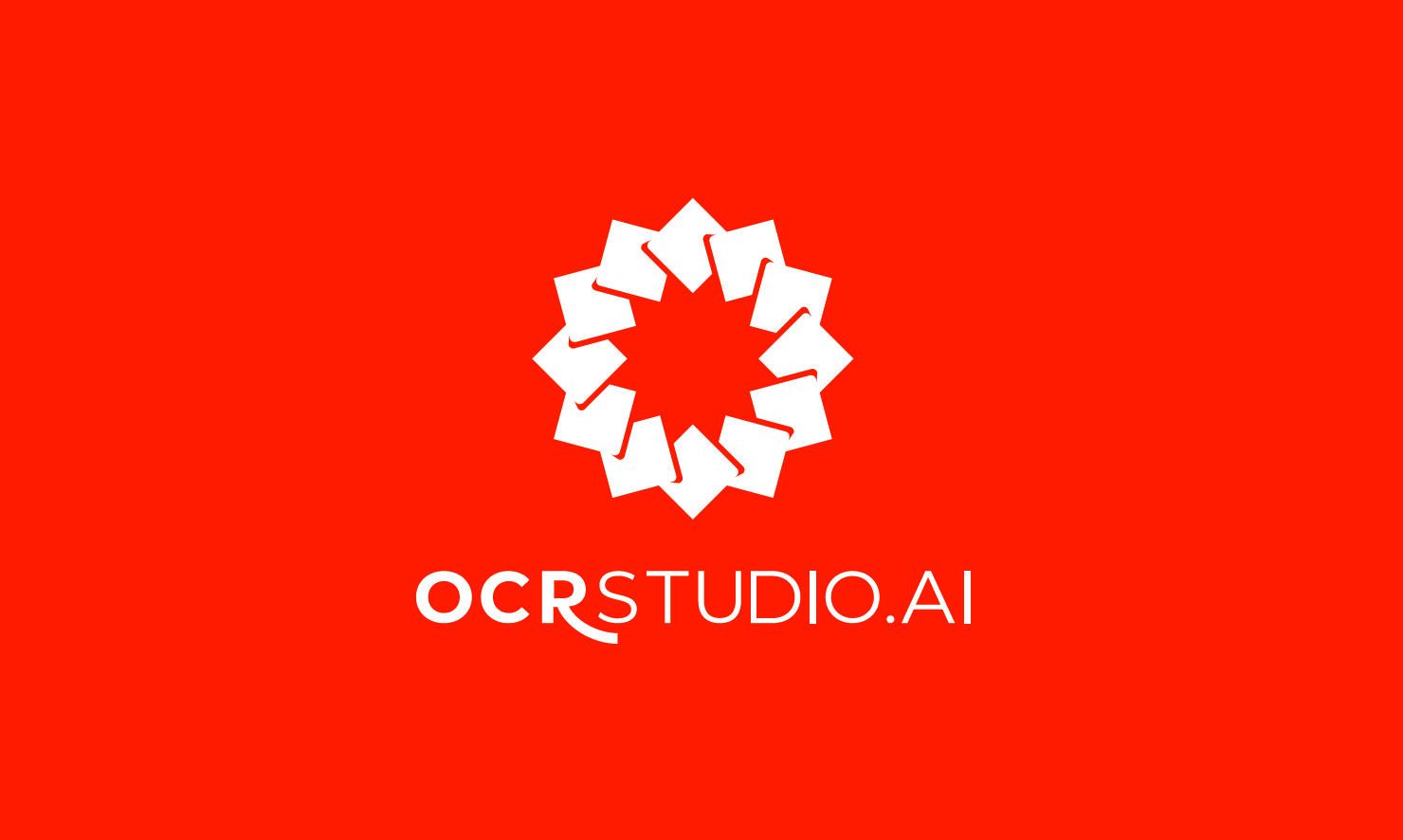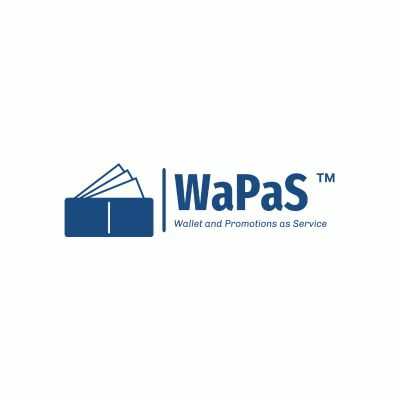Financial Services Software is accessible from a variety of devices and platforms, allowing users to stay up to current on their finances no matter where they are. With technological advancements, financial software may now be downloaded on smartphones, tablets, and accessed via web browsers on any operating system. This ensures that users have smooth and secure access to their financial data, with no constraints.
List of 20 Best Financial Services Software
Focal is a AML compliance solution for financial institutions. Powered by AI and streamlined automation, Focal offers seamless customer screening, transaction monitoring, and risk assessment. Say goodbye to manual processes and hello to a comprehensi...Read More Focal
OCR Studio AI - an advanced SDK powered by AI. It easily integrates with multiple platforms and supports over 100 languages. This innovative tool accurately reads MRZ and extracts data from various documents like passports, drivers licenses, and ID c...Read More OCR Studio AI
FinX by Xtract.io, your comprehensive solution for achieving compliance and meeting superior reporting standards through precise ESG data. This user-friendly software automates operational tasks and conforms to global framework standards, providing t...Read More FinX by Xtract.io
Maanch Engagement Tracker is a cloud-based platform designed specifically for asset managers and investors. Keep track of all your portfolio engagements effortlessly and ensure compliance with global regulations. Our powerful and user-friendly interf...Read More Maanch Engagement Tracker
PayJoy is a financial solution for all kinds of businesses. With our affordable installment plans, you can purchase smartphones while safeguarding them against loss with collators. Our secure mobile API guarantees all transactions take place in a sec...Read More PayJoy
Contribee is a membership platform designed to empower creators to monetize their content with zero commission fees. Our platform offers a seamless subscription service, allowing creators to easily generate revenue from their work without any third-p...Read More Contribee
RASI is a outsourced platform for restaurant Accounting, Payroll, and Finance. Say farewell to the dilemma of selecting between high-quality software and outstanding service - RASI offers both seamlessly. Our advanced technology simplifies back-offic...Read More Restaurant Accounting (RASI)
Zil Money is a payment solution for businesses. With its cloud-based platform and an array of features including Pay by Credit Card, Check Printing, ACH, and Wire Transfers, Zil Money offers a seamless and efficient way to manage your finances. Say g...Read More Zil Money
Tickertape is a leading financial platform for Indian investors, offering the latest information on stocks, mutual funds, ETFs, and indices. Our user-friendly interface provides personalized tracking and curated screens to assist in making informed d...Read More Tickertape
Kalansh is a financial solution. Take control of your accounts, investments, and budgets with cutting-edge security and powerful insights. Customize your financial path and unlock the secrets to achieving financial stability. With Kalansh, managing y...Read More Kalansh
Airwallex is a leading financial services provider that offers top-notch solutions for managing global payments. Our platform allows you to easily create accounts for optimizing online transactions and cross-border payments. Enjoy the convenience and...Read More Airwallex
ChartPrime is a charting software designed for traders of all levels. With cutting-edge tools and expert market analysis, it gives you an advantage in the dynamic world of trading. Whether youre new to trading or an experienced pro, ChartPrime provid...Read More ChartPrime
SimpleAccounts - your ultimate accounting companion for financial empowerment. With our software, you can easily track expenses, create invoices, manage taxes, and handle payroll all on your secure server. Simplify your businesss financial management...Read More SimpleAccounts
Founderpath is a innovative funding solution that removes the hassles of equity raising for founders. Our system uses bank account and customer data to generate a credit score, which determines the amount of funds we can lend to your company. The hig...Read More Founderpath
Moneypex is a accounting software that simplifies bookkeeping and streamlines financial management for businesses. Designed for startups, contractors, and sole traders, this all-in-one solution centralizes your finances in one place, saving you time...Read More Moneypex
Video KYC - a AI-based solution specifically designed for Banks and Fintech industries to streamline the Know Your Customer process through online methods. With advanced Geo-tagging for accurate location verification, it significantly reduces custome...Read More Video KYC
Sila - a banking and payment infrastructure solution that empowers businesses to create their own financial services. With Silas powerful payment APIs, companies can transform traditional financial processes and simplify their operations. By leveragi...Read More Sila
S&P Capital IQ Prois a Essential Intelligence platform tailored for the unique requirements of Financial Institutions and Corporations. With its sophisticated functionalities, it empowers businesses to achieve prosperity and generate value by profici...Read More S&P Capital IQ Platform
S&P Capital IQ Pro, a dynamic software designed to drive efficiency, enhance productivity, and enable informed decision-making across various sectors. Through its advanced fusion of data, analytics, and research capabilities, S&P Capital IQ Pro empow...Read More S&P Capital IQ Pro
WaPaS is a all-in-one solution that seamlessly combines customer acquisition with our innovative Refer & Earn program. Our software also includes a loyalty and rewards system, as well as precise transaction tracking, to enhance engagement and improve...Read More WaPaS
Learn More About Financial Services Software
- What Is Financial Services Software?
- What Are The Recent Trends In Financial Services Software?
- Benefits Of Using Financial Services Software
- Important Factors To Consider While Purchasing Financial Services Software?
- What Are The Key Features To Look For In Financial Services Software?
- Why Do Businesses Need Financial Services Software?
- How Much Time Is Required To Implement Financial Services Software?
- What Is The Level Of Customization Available In Financial Services Software?
- Which Industries Can Benefit The Most From Financial Services Software?
- Conclusion
What Is Financial Services Software?
Financial services software is a collection of digital tools and applications built primarily to help financial institutions and professionals with their day-to-day operations and decision making. This sort of software streamlines and automates a variety of financial activities, including transaction administration, reporting, risk analysis, and compliance monitoring.
One of the primary advantages of financial services software is its capacity to centralize and integrate data from numerous sources, enabling real-time visibility and analysis of financial data. This allows financial organizations to make faster, more informed choices, resulting in increased efficiency and profitability. Accounting software, portfolio management software, financial planning software, and more options are available.
These software solutions are designed with specific features and functionalities that cater to the demands of various financial institutions, such as banks, insurance companies, wealth management firms, and investment firms.
When considering acquiring financial services software, it is critical to investigate and evaluate many solutions to determine which one best meets your specific business requirements. Pricing, scalability, interoperability with existing systems, data security, and customer support are all important considerations.
What Are The Recent Trends In Financial Services Software?
In recent years, the financial services industry has undergone a dramatic transition toward technology-driven solutions. The introduction of financial services software has transformed how firms conduct accounting, bookkeeping, and financial management responsibilities. This program is specifically developed to streamline and automate numerous financial procedures, resulting in increased efficiency and accuracy.
One of the most significant trends in financial services software is the use of cloud-based solutions. Financial organizations are increasingly using cloud-based technologies to manage their data and processes. This enables remote access, real-time updates, and improved cooperation among team members. Additionally, there has been an increase in the application of AI and machine learning in financial services software.
These technologies enable the software to analyze massive amounts of data, discover trends, and generate accurate forecasts, allowing organizations to make better financial decisions. Another trend in financial services software is the consolidation of various functions and features onto a single platform. This enables for a more streamlined and effective workflow because users can manage multiple financial chores from a single area.
The growing demand for data protection has prompted the development of more powerful security measures in financial services software. This includes encrypted data transmission, multi-factor authentication, and automated backups to ensure the security of sensitive financial data. Finally, mobile compatibility is becoming an important feature of financial services software.
Customers expect to be able to access their financial information and conduct transactions on their mobile devices as mobile usage increases. As a result, software developers are working on making their products more mobile-friendly.
Benefits Of Using Financial Services Software
Financial services software has emerged as a crucial tool for organizations of all kinds in today's fast changing financial market. This powerful software is intended to streamline and automate financial activities, increasing their efficiency and accuracy. In this buyer's guide, we'll go over the numerous benefits of adopting financial services software and how it may help your organization.
1. Increased Efficiency And Productivity: One significant benefit of financial services software is that it reduces the need for human data entry, which may be tiresome, time-consuming, and error-prone. Financial operations such as bookkeeping, invoicing, and tax computations can be completed quickly and accurately using automated processes, allowing you and your staff to focus on other critical parts of your organization.
2. Real-Time Financial Insights: Financial services software can deliver real-time information about your company's financial health and performance. This enables you to make informed and timely decisions using correct data. You no longer need to wait for end-of-month reports to grasp your financial situation, offering you a competitive advantage in today's fast-paced business environment.
3. Customized Solutions: Financial services software can be adjusted to meet the specific requirements of your company. This allows you to select the elements that are most relevant to your sector, company size, and unique financial objectives. Customization choices also provide scalability, which means that the program may expand with your company as your demands change.
4. Improved Accuracy And Compliance: In the financial industry, accuracy is essential. Financial services software may dramatically reduce the likelihood of human error, which can have serious ramifications for a company. Additionally, the program can assist you in complying with financial rules and tax laws, eliminating the stress and potential penalties associated with manual recordkeeping.
5. Cost-Effectiveness: Investing in financial services software may appear to be an unnecessary cost, but it can actually save your company money over time. By automating procedures and removing the need for paper-based processes, you may cut operational expenses while increasing profits.
6. Improved Customer Service: In the digital age, clients want fast and dependable service. Financial services software can help you improve your customer service by providing timely and accurate financial information, lowering the likelihood of errors and delays. This can result in improved customer satisfaction and retention rates.
Important Factors To Consider While Purchasing Financial Services Software?
When it comes to selecting financial services software, there are several crucial elements to consider to ensure that you are making an informed and prudent decision for your company. We've detailed the essential aspects to consider when comparing different solutions in this category.
1. Features And Functionality: The software's features and functionality are the most important factors to evaluate. Accounting and bookkeeping skills, budgeting and forecasting tools, invoicing and payment processing, and reporting and analytics are all important things to look for, but this can vary depending on your individual needs. It is also critical to determine whether the software connects with other systems or platforms that you currently use.
2. Scalability: Your company's needs may change and increase over time, therefore it is critical to select financial services software that can scale accordingly. This prevents you from having to transition to a different solution as your firm grows, which can be costly and disruptive.
3. User-Friendliness: The program should be simple and intuitive to use, especially for individuals unfamiliar with financial terms or complex accounting processes. This will ensure that your team can quickly learn and implement the software, reducing the time and resources necessary for training.
4. Security: Because financial data is highly sensitive and confidential, the software you use must have strong security measures in place to protect it from cyber threats. To protect your financial information, look for features such as data encryption, multi-factor authentication, and regular backups.
5. Customer Support: If you have any problems or inquiries while using the product, dependable customer service is crucial. Look for a company who provides multiple support channels, such as phone, email, and live chat, and has a speedy response time.
6. Cost: The cost of the software is another important issue to consider, particularly for small and medium-sized organizations. While it may be tempting to go with the lowest choice, remember that quality comes at a cost. Look for a solution that provides good value for money and fits inside your budget.
7. Reviews And Ratings: Before making a decision, it is usually a good idea to read reviews and ratings about the software from current and former users. This will provide you with an overview of the product's user experience, reliability, and general happiness. By carefully evaluating these aspects, you can make an informed decision about selecting financial services software that suits your company's objectives and goals. Remember to conduct extensive research and compare several possibilities before making a final selection to ensure the best possible investment for your company.
What Are The Key Features To Look For In Financial Services Software?
When investing in financial services software, it is critical to thoroughly analyze the major aspects that will best suit your requirements. After all, this software can help you manage your finances and make more educated business decisions.
The following are the essential features to look for in financial services software.
1. Security And Compliance: First and foremost, your financial services software should include strong security mechanisms to secure sensitive financial data. It should also meet industry standards and laws to ensure legal compliance.
2. User-Friendly Interface: The software's interface should be simple to navigate and use, even for individuals unfamiliar with financial language. This will make it easy to manage your accounts and track critical data.
3. Customization Options: Your business and financial requirements are unique, and the software should be able to adjust to them. Look for software with customization possibilities to suit the platform to your individual needs.
4. Data Management And Analysis: Financial services software should be capable of gathering, organizing, and analyzing massive amounts of data in real time. This will allow you to make data-driven decisions and uncover patterns that may affect your organization.
5. Integration With Other Systems: Your financial services software should be easy to interface with other systems, such as accounting software or CRM platforms. This will help to streamline your processes and prevent redundant data entering.
6. Automation And Workflow Management: Look for software that allows you to automate invoicing and set up automatic payment reminders. This will save you time and effort while increasing overall efficiency.
7. Reporting And Analytics: The program should include comprehensive reporting and analytics features. This will allow you to track important performance indicators and gain a better understanding of your finances so that you can make informed decisions.
8. Scalability: As your firm expands, so will your financial requirements. Choose scalable software that can allow future growth without requiring a major rewrite of the system. Keeping these crucial aspects in mind will allow you to make an informed decision when selecting the best financial services software for your organization. Remember to consider your budget and undertake extensive research to choose a respectable and trustworthy vendor.
Why Do Businesses Need Financial Services Software?
Businesses use financial services software for a variety of reasons. First and foremost, it simplifies and automates financial tasks, saving time and reducing errors. This is critical for firms of all sizes because it enables more precise and effective financial management. Additionally, financial services software gives firms real-time access to financial data and analytics.
This enables improved decision making and strategic planning. Businesses with the ability to track and evaluate financial trends and performance can identify areas for development and make informed decisions to maximize their financial success. Furthermore, financial services software can help with compliance and regulatory issues.
Many industries have tight laws and reporting requirements, so utilizing software created expressly for financial services can help organizations stay compliant and avoid penalties or fines. Furthermore, financial services software enhances collaboration and communication within an organization. Teams can collaborate more efficiently and make educated decisions when they use features like shared dashboards and real-time data.
Finally, the adoption of financial services software can save businesses money. Businesses can minimize operating expenses by automating operations and decreasing errors. Furthermore, the software's data and analytics can help find cost-cutting opportunities and financial waste.
Overall, financial services software provides several benefits to firms, such as higher efficiency, better decision-making, compliance, cooperation, and cost savings. As a result, it is a must-have tool for every firm wishing to successfully manage its finances and achieve long-term profitability.
How Much Time Is Required To Implement Financial Services Software?
The implementation time for financial services software varies according to your organization's specific needs and size. On average, it can take between a few weeks and several months to properly develop and integrate the software into your company processes. The complexity of the product, the amount of modules or features in use, and the level of customization required can all have an impact on implementation time.
Furthermore, the responsiveness and availability of your IT team and staff people in charge of integrating the program can impact the timetable. Before commencing the implementation process, you must first understand your organization's needs and expectations. This will help guarantee that the program is configured and adjusted to match your exact requirements while minimizing any delays.
It is also crucial to note that, while initial setup may take some time, continuous maintenance, upgrades, and training must be considered for the software's successful long-term integration into your business operations. To summarize, the time necessary to adopt financial services software varies, but with careful planning and a focused team, it can be a smooth process that will ultimately increase the efficiency and effectiveness of your business operations.
What Is The Level Of Customization Available In Financial Services Software?
Financial services software provides a diverse set of features and functionalities to meet the unique needs of various financial service providers. When comparing software solutions, one of the most important factors to consider is the level of customisation available. Customization is critical for enterprises because it allows them to tailor the software to their own business processes and needs.
The level of customisation offered in financial services software varies greatly between solutions. Some software may merely provide rudimentary customization features, such as the ability to add company branding or change user preferences. On the other side, some software may offer significant customization options, allowing customers to modify every aspect of the product to their specific requirements.
Reports, workflows, dashboards, and templates are some of the primary areas where financial services software can be customized. Companies can tailor the structure, presentation, and data contained in their reports to match their specific reporting requirements. Workflows can also be changed to mirror the organization's own processes and workflows, ensuring that the software is consistent with their existing workflows.
Dashboards can also be customized to provide an overview of an organization's key performance indicators (KPIs). This enables consumers to swiftly access relevant information and make informed decisions. Templates for financial statements and invoices can also be changed to reflect the organization's logo and specific needs.
In addition to these features, certain financial services software allows for custom development, which involves customizing or extending the platform's primary functionality through code. This level of customization is suited for organizations that have extremely particular and complex requirements that cannot be satisfied by off-the-shelf products. When determining the extent of customization in financial services software, it is critical to examine the company's current and future requirements.
A software solution that allows for a high level of customisation may take more time and resources to develop initially, but it can deliver a bespoke solution that grows with the business in the long term.
Which Industries Can Benefit The Most From Financial Services Software?
Financial services software is an essential tool for firms across industries seeking to simplify and automate their financial operations. This sophisticated technology provides a comprehensive set of solutions for accounting, budgeting, invoicing, financial planning, and more. But which industries will profit the most from integrating financial services software into their operations?
1. Banking & Finance: It's no surprise that the banking and finance business is one of the biggest beneficiaries of financial services software. This industry deals with complicated financial transactions and operations on a regular basis, and having a reliable software solution can significantly increase productivity, accuracy, and compliance. From online banking and digital payments to risk management and trading, financial services software equips banks and financial organizations with the tools they need to stay competitive.
2. Healthcare: Managing funds in the healthcare industry may be difficult, especially given the frequent changes in rules and billing procedures. Financial services software can help healthcare providers manage patient billing, insurance claims, and other financial elements. This software, which automates operations and provides real-time data and analytics, can help healthcare providers maximize income and eliminate billing errors.
3. Insurance: Insurance firms face difficult financial computations and risk evaluations on a regular basis. Financial services software provides insurance firms with specific solutions that allow them to easily manage policies, claims, and underwriting. This not only streamlines operations but also reduces the possibility of errors, resulting in precise financial data for better decision-making.
4. Manufacturing: Manufacturing organizations must have effective finance management in place to ensure that their operations run smoothly. Financial services software can assist manufacturers in tracking inventories, manufacturing costs, and cash flow, offering vital insights for improved financial planning and resource allocation. Manufacturing organizations can benefit from increased productivity, lower expenses, and better overall financial health.
5. Retail & E-commerce: E-commerce and retail enterprises handle a large number of transactions, which makes manual financial management difficult and time-consuming. Financial services software can help to streamline the entire process, from purchase orders and inventory management to invoicing and payment. This not only saves time, but also assures that financial data is correct, allowing for informed business decisions.
Conclusion
To summarize, selecting the appropriate financial services software for your firm necessitates considerable analysis and research. It is critical to understand your individual requirements and objectives, as well as the features and capabilities of the software solutions on the market. After analyzing and comparing several possibilities, make a shortlist of the top contenders and set up demos or trials to gain direct experience with the program.
Remember to consider pricing, customer support, and scalability while making your ultimate decision. Investing in the correct financial services software can boost your company's financial efficiency, accuracy, and overall performance. Choose thoughtfully, and keep in mind that the best software will adapt to your demands and grow with your company. We hope this buyer's guide has helped you make an informed selection.
Financial Services Software FAQ's
Can Financial Services Software Be Accessed Across Multiple Devices And Platforms?
Is Financial Services Software Future-Proof And Adaptable To Emerging Technologies Like Ai, Blockchain or Iot?
Financial Services Software is always evolving to keep pace with the ever-changing world of technology and the finance business. The rise of AI, blockchain, and IoT has made financial services software more future-proof and adaptive.
These technologies enable faster and more accurate data analysis, safe and efficient transactions, and a better customer experience. Leading financial services software suppliers are adopting these technologies to improve their capabilities and prepare for future improvements.
Is There A Free Trial Offered To Assess Financial Services Software Before Committing?
Many financial services software suppliers provide a free trial period to allow customers to evaluate their products before committing. This helps potential buyers to evaluate the software's features, user interface, and overall functionality.
It is critical to take advantage of free trials to check that the software meets your business goals and standards. Before making a decision, ensure that you have thoroughly evaluated the trial version.
Does Financial Services Software Offer Data Security Features And Meet Regulatory Compliance Standards?
Yes, financial services software has data security protections and adheres to regulatory compliance criteria. These software applications utilize a variety of encryption and authentication mechanisms to protect sensitive financial information.
They also follow industry norms and standards, such as PCI DSS and GDPR, to prevent data breaches and ensure compliance. This protects your financial data and helps businesses satisfy their legal duties.
Can Financial Services Software Integrate Seamlessly With Existing Tools And Platforms?
Financial services software is intended to work easily with existing tools and platforms used by financial organizations. This provides for a more seamless transition and reduces delays to everyday operations. With strong integration capabilities, financial services software may readily link to a variety of systems, including accounting software, risk management tools, and customer databases.
This guarantees that all data and processes are in sync, allowing for simpler access and analysis of critical financial information. Furthermore, these linkages can be adapted to each organization's individual needs, resulting in a bespoke and effective solution for financial service management.







-logo.png)














